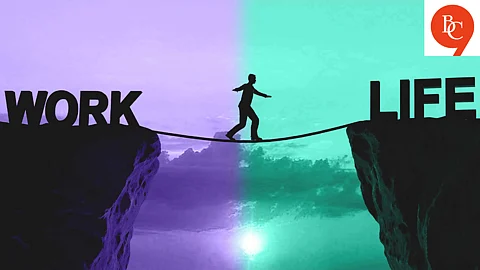

Her story forces us to ask a hard question: Are we living to work, or working to live?
The Myth of “Having It All”
In today’s hyper-connected world, the line between work and life has disappeared. Emails buzz after midnight. Team meetings stretch into weekends. LinkedIn glorifies overachievement. If you’re not exhausted, you’re not trying hard enough — or so we’re made to believe.
Especially for young professionals like Abhilasha, who are still building their careers, the pressure to prove themselves in toxic productivity cultures is overwhelming. Work-life balance isn’t just hard — it often feels impossible.
But the consequences of imbalance are real: burnout, anxiety, depression, relationship breakdowns, and tragically, even suicide.
What “Work-Life Balance” Actually Means
It’s not about working less.
It’s about living more intentionally.
Work-life balance is the ability to prioritize your personal life, well-being, rest, and relationships — without guilt. It’s recognizing that you are not your job and that your value doesn’t come from output alone.
Why It’s So Hard to Achieve
1. Hustle Culture
We’re taught to keep grinding, even when we’re emotionally and physically drained. Taking breaks is seen as “weakness.”
2. Always-On Tech
With smartphones and WFH, people feel like they’re never off-duty. A 9-to-5 job silently becomes a 24/7 commitment.
3. Lack of Boundaries
Indian work culture often glorifies over-availability. Saying “no” to extra work or weekend calls can cost you promotions or respect.
4. Personal Guilt
Even when free, many people can’t relax without feeling unproductive. We've been conditioned to tie our self-worth to our to-do lists.
5 Practical Ways to Create Work-Life Balance That Lasts
1. Set Digital Boundaries
Turn off notifications after work hours. Don’t reply to emails unless it’s urgent. Your phone is not your boss.
2. Block Personal Time
Treat your “me time” as sacred. Block it on your calendar like a meeting — and don’t cancel it for work.
3. Redefine Productivity
Rest is not laziness. Fun is not a waste. A well-rested brain is more productive than a burned-out one.
4. Say “No” Without Guilt
You don’t owe your job your health. Learn to push back on unrealistic expectations with grace and firmness.
5. Seek Support When Needed
If you’re struggling to cope, reach out — to a friend, a therapist, or a support group. You're not alone, and you don’t have to pretend to be okay.
Let’s be clear - Work-life balance isn’t a privilege. It’s a right.
Let Abhilasha’s story not be another tragedy buried under headlines. Let it be a catalyst — to rethink what we’re chasing and reclaim the lives we deserve.
